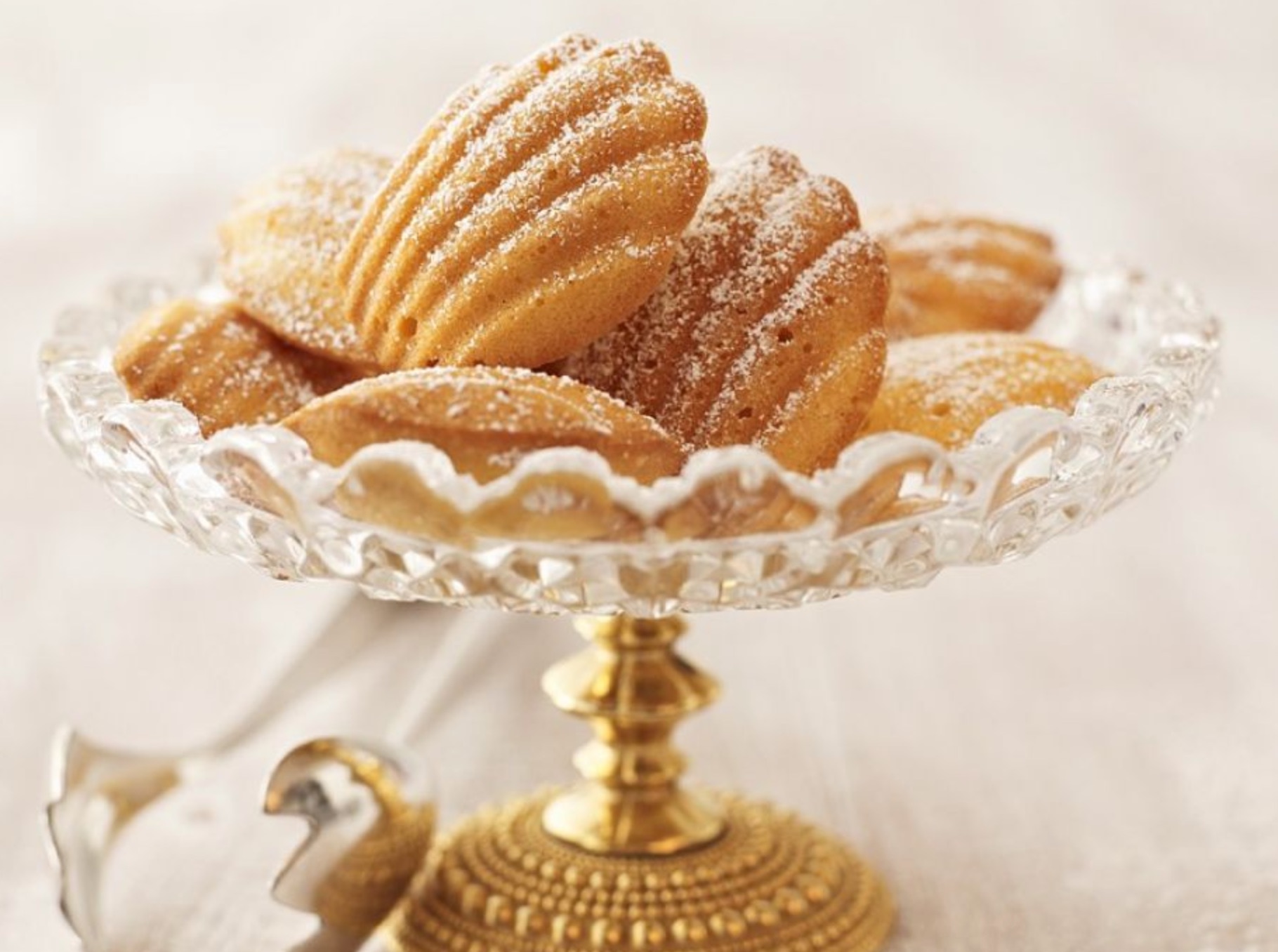An average guy is having an average — no, make it a mediocre, even crappy day. He comes home and his mother gives him a little cake and tea.
The experience blows his mind. In his words:
“One day in winter, as I came home, my mother, seeing that I was cold, offered me some tea, a thing I did not ordinarily take. I declined at first, and then, for no particular reason, changed my mind. She sent out for one of those short, plump little cakes called ‘petites madeleines,’ which look as though they had been moulded in the fluted scallop of a pilgrim’s shell. And soon, mechanically, weary after a dull day with the prospect of a depressing morrow, I raised to my lips a spoonful of the tea in which I had soaked a morsel of the cake. No sooner had the warm liquid, and the crumbs with it, touched my palate, a shudder ran through my whole body, and I stopped, intent upon the extraordinary changes that were taking place.
“An exquisite pleasure had invaded my senses, but individual, detached, with no suggestion of its origin. And at once the vicissitudes of life had become indifferent to me, its disasters innocuous, its brevity illusory—this new sensation having had on me the effect which love has of filling me with a precious essence; or rather this essence was not in me, it was myself. I had ceased now to feel mediocre, accidental, mortal. Whence could it have come to me, this all-powerful joy? I was conscious that it was connected with the taste of tea and cake, but that it infinitely transcended those savours, could not, indeed, be of the same nature as theirs. Whence did it come? What did it signify? How could I seize upon and define it?”
That’s the “madeleine moment” from Marcel Proust’s Remembrance of Things Past (later translated as In Search of Lost Time). Proust was writing in a different language for an audience of a different era, but the theme of involuntary memory is still compelling. How can dipping a cookie in tea catalyze transcendence? What is it that tickles our senses, activates our hypothalamus, and suddenly gifts us the experience of deep insight?
Meanwhile, exactly how the fuck do we possessors of such magical capacities keep forgetting and ignoring the most basic information that may yet save us from ourselves?
How many times do we need to be told that going for a hike is a bad idea when it’s 114 degrees at the trailhead? Even doctors – like this neurologist (read: expert on the brain) – die on the trail when it’s too hot. Those examples are just from this past week. Each year from 2004-2018 about 700 Americans died from natural heat exposure. And every article that reports on every one of these incidents includes “Hot Weather Safety Tips” and “Signs of Heat Emergencies” and the like.
You’d think maybe everyone would get the message and learn. Nope. Every year, people still hit the trails in the heat, and they still die.
Memory Hurts Less Than Addiction
As George Santayana famously observed, “Those who do not remember the past are condemned to repeat it.”
I first read that quote as the epigraph to The Rise and Fall of the Third Reich, a book on my grandmother’s shelf with a terrifying cover and an even more terrifying cautionary tale within its pages.
But now that the last of the Holocaust survivors are dying, too many Americans act like it didn’t happen. Or that Nazi Germany didn’t see the Jim Crow south as a design worth imitating. Or that assholes like Henry Ford didn’t run around promoting lies like the “Protocols of the Elders of Zion.”
Worse, we are now doing some of the same things in America that Nazi Germany did before World War II.
In last Sunday’s Los Angeles Times, acclaimed documentary filmmaker Ken Burns wrote, “We seem unwilling, even uninterested, in nurturing from the tangled roots of our past a better future. How else can we describe a time when many Americans cling to blind and unexamined notions of the nation’s ‘greatness’ yet lash out at schools and teachers, fearing what a thoughtful look at our country’s history might uncover? The battles we are fighting today are battles about whether as a society we choose honest understanding of the past over willful blindness.”
I encourage you to read the whole piece.
This country was never perfect. It won’t ever be perfect. And unless we have the guts to face our imperfections so that we can improve upon them, we are damned.
Cheer up. This blog post is actually one of hope. Little things often remind me of big ideas. That’s why I teach.
I don’t want hikers to die in the heat. I don’t want our country to disintegrate.
So, please… if you do nothing else, at least consider this: the hiker who ignores heat warnings kills only himself. The racist xenophobe who ignores our country’s past kills everything good about the word American.
Learn about our past so that together we can build a better future.
